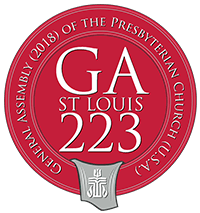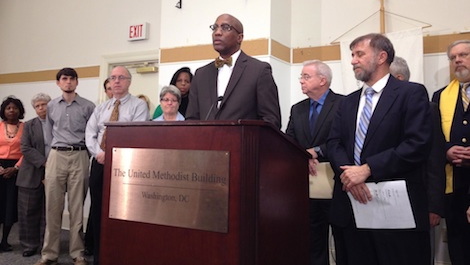Notes
[1] A version of this essay was presented at the national meeting of the American Academy of Religion on November 17th, 2012.
[2] A recent account of this debate, along with Eberhard Jüngel’s subsequent criticism of Gollwitzer’s position, can be found in Bruce L. McCormack, “God Is His Decision: The Jüngel-Gollwitzer “Debate” Revisited,” in Theology as Conversation: The Significance of Dialogue in Historical and Contemporary Theology, A Festschrift for Daniel L. Migliore, ed. Bruce L. McCormack and Kimlyn J. Bender (Grand Rapids, MI: William B. Eerdmans Publishing Company, 2009).
[3] Paul Oestreicher compares the attention that Gollwitzer received as a result of this publication with that received by J. A. T. Robinson a decade later in Britain after the publication of Honest to God. Paul Oestreicher, “Helmut Gollwitzer in the European Storms,” in The Demands of Freedom: Papers by a Christian in West Germany, ed. Helmut Gollwitzer (New York: Harper and Row Publishers, 1965), 7.
[4] As reprinted in Helmut Gollwitzer, The Demands of Freedom: Papers by a Christian in West Germany, trans. Robert W. Fenn (New York: Harper and Row Publishers, 1965). 148–49.
[5] One scholar notes that the church in general “is—from its beginnings—an impenetrable mixing bowl for various concoctions of not-unexplosive blends of piety and politics.” Harald Schroeter-Wittke, “Der Deutsche Evangelische Kirchentag in den 1960er und 70er Jahren – eine soziale Bewegung?,” in Umbrüche: Der deutsche Protestantismus und die sozialen Bewegungen in den 1960er und 70er Jahren, ed. Siegfried HermIe, Claudia Lepp, and Harry Oelke (Göttingen: Vandenhoeck & Ruprecht, 2007), 218–19.
[6] Helmut Gollwitzer, An Introduction to Protestant Theology, trans. David Cairns (Philadelphia, PA: The Westminster Press, 1982). 191.
[7] Gollwitzer, Demands of Freedom: 72.
[8] See Gollwitzer, Protestant Theology: 191–2. Gollwitzer draws very briefly here on the imagery found in Mi 4.3f, Zec 3.10, and Rom 14.17.
[9] Helmut Gollwitzer, “The Real Luther,” in Matinus Luther: 450th Anniversary of the Reformation (Bad Godesberg: Inter Nationes, 1967), 13. As Gollwitzer writes elsewhere: “Freedom means liberty for the other person.” Gollwitzer, Demands of Freedom: 33.
[10] This notion goes back at least as far as Plato. His Republic defines justice both as “doing one’s own work and not meddling with what isn’t one’s own” and as judging that “no citizen should have what belongs to another or be deprived of what is his own.” Plato, “Republic,” in Complete Works, ed. John M. Cooper and D. S. Hutchinson (Indianapolis, IN: Hackett Publishing Company, 1997), 4.433. It is worth noting, however, that matters are complicated by some of the ways Plato both undercuts and builds upon an account of love as love of one’s own in his Symposium.
[11] “CDU stoppt Kampagne “Jedem das Seine”,” Spiegel Online(March 11 2009), http://www.spiegel.de/schulspiegel/wissen/nazi-slogan-cdu-stoppt-kampagne-jedem-das-seine-a-612757.html.
[12] See Dietrich Bonhoeffer, Ethics, ed. Clifford J. Green, trans. Richard Krauss, Charles C. West, and Douglas W. Stott, vol. 6, Dietrich Bonhoeffer Works (Minneapolis, MN: Fortress Press, 2005). 181–85.
[13] Gollwitzer, Protestant Theology: 201.
[14] Helmut Gollwitzer, “Why I am a Christian Socialist,” Christ und Sozialist(1980), http://portland.indymedia.org/en/2003/04/62441.shtml; for the German text, see http://www.brsd.de/historisch/31-warum-bin-ich-als-christ-sozialist-1980.
[15] Gollwitzer, “Real Luther,” 12.
[16] Gollwitzer, Protestant Theology: 199.
[17] For many in our own context, this willingness to positively engage with Marxism will be suspicious given that, as Hugh McLeod has noted, “for some of the revolutionary Christians of [the late 1960s and early 1970s] Marxism simply replaced Christianity as a world-view.” Hugh McLeod, “European Religion in the 1960s,” in Umbrüche: Der deutsche Protestantismus und die sozialen Bewegungen in den 1960er und 70er Jahren, ed. Siegfried HermIe, Claudia Lepp, and Harry Oelke (Göttingen: Vandenhoeck & Ruprecht, 2007), 43. As Gollwitzer’s Christian Century obituary put it: “Gollwitzer found much to recommend in the Marxist critique of the capitalist system, but he always stressed that his position was formed in the crucible of the Christian gospel—in some ways anticipating and, later, paralleling liberation theology.” “Anti-Nazi theologian Helmut Gollwitzer dies,” Christian Century 110, no. 32 (November 10, 1993): 1118.
[18] See Helmut Gollwitzer, The Christian Faith and the Marxist Criticism of Religion, trans. David Cairns (New York: Charles Scribner’s Sons, 1970). 104–23 and esp. 17–18.
[19] Ibid., 150.
[20] Ibid., 165. Gollwitzer quickly adds, however: “not as if [the church] were now permitted to speak in the alien language of Canaan.”
[21] Helmut Gollwitzer, The Rich Christians and Poor Lazarus, trans. David Cairns (New York: The Macmillan Company, 1970). 71. See also Gollwitzer, Demands of Freedom: 139–40.
[22] One study focused on wealth distribution showed that the top 20% of folks in our society control over 80% of the nation’s wealth, while the bottom 60% of folks control less than 10%. See Michael I. Norton and Dan Ariely, “Building a Better America??One Wealth Quintile at a Time,” Perspectives on Psychological Science 6, no. 1 (2011). There is also the matter of society at large backing irresponsible economic practices as financial firms—i.e., the Wall St. bailout—without securing concomitant debt relief. #OWS has recently begun to develop structures aimed at challenging the current debt-driven economy and its social consequences. One such structure is the Rolling Jubilee, which plans to purchase commoditized debt for the purpose of forgiving said debt. See http://strikedebt.org/ and http://rollingjubilee.org/. Finally, there is the issue of an economic recovery, both in the mid-2000s and more recently, that generally benefitted only the already wealthy while passing by the middle and lower classes. See Robert Frank, “The 1% Captures Most Growth From Recovery,” The Wall Street Journal(March 6 2012), http://blogs.wsj.com/wealth/2012/03/06/the-1-captures-most-growth-from-recovery/.
[23] Gollwitzer, Rich Christians: 51–2.
[24] Here is a more complete quotation: “Economic power is political power, however much that fact may be disguised in our form of democracy, and to however large an extent the possessors of economic power may leave the business of politics to professional politicians.” Ibid., 49–50. Things have become less disguised in our own day, which has helped to motivate #OWS. One thinks especially of the Citizens United decision rendered by the Supreme Court. See “Citizens United v. Federal Election Commission,” SCOTUSblog: Supreme Court of the United States Blog, http://www.scotusblog.com/case-files/cases/citizens-united-v-federal-election-commission/.
[25] Gollwitzer, “Why I am a Christian Socialist”. 4.3. Michael Weinrich refers to Gollwitzer’s appreciation for Luther’s turn of phrase, “anything that is not service is robbery.” Michael Weinrich, “Gesellschaftliche Herausforderungen der Theologie: Erinnerungen an Helmut Go/lwitzer,” Evangelische Theologie 59, no. 3 (1999): 171.
[26] Gollwitzer, Marxist Criticism of Religion: 151.
[27] Perhaps the best single resource on religious involvement with #OWS is http://www.occupyfaith.com/






Unbound Social